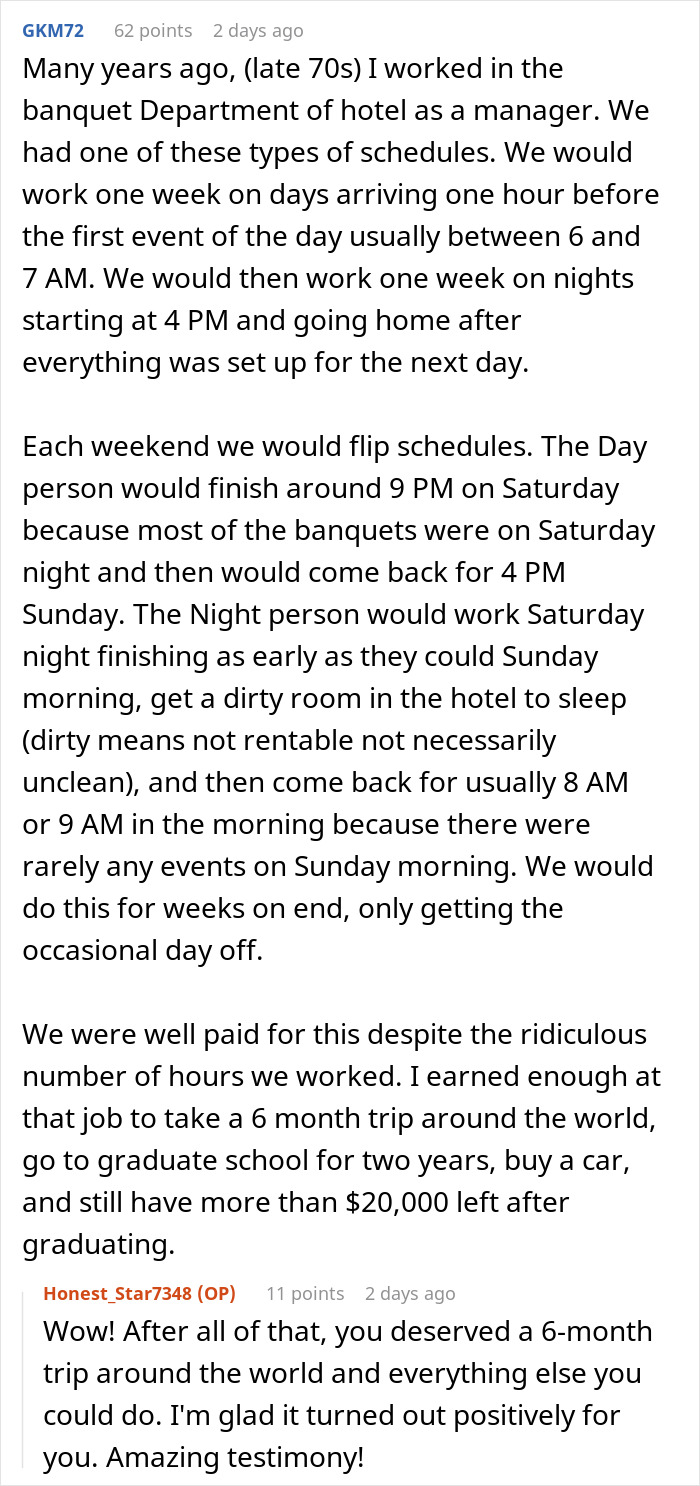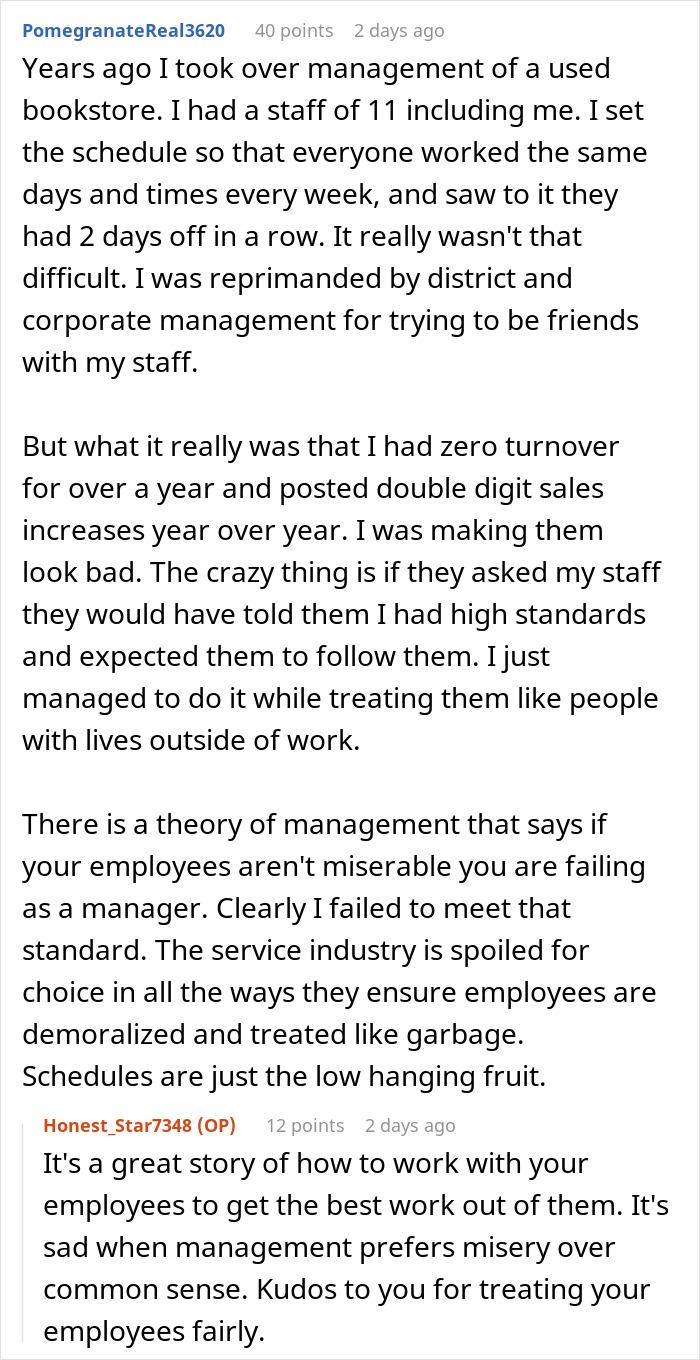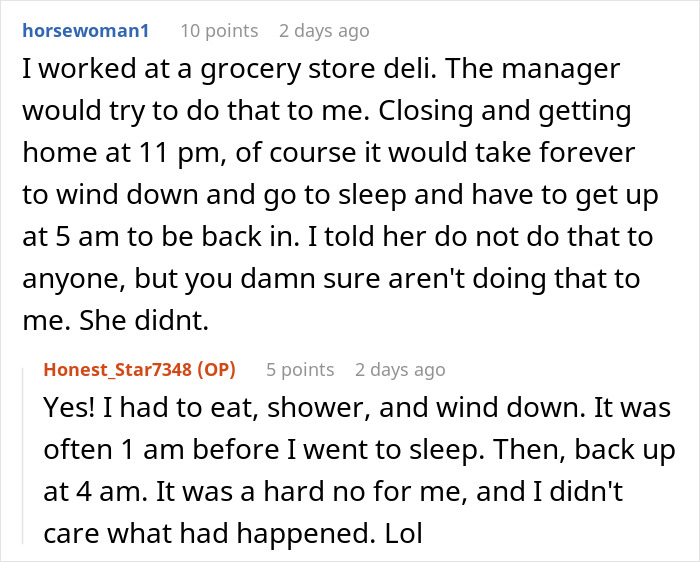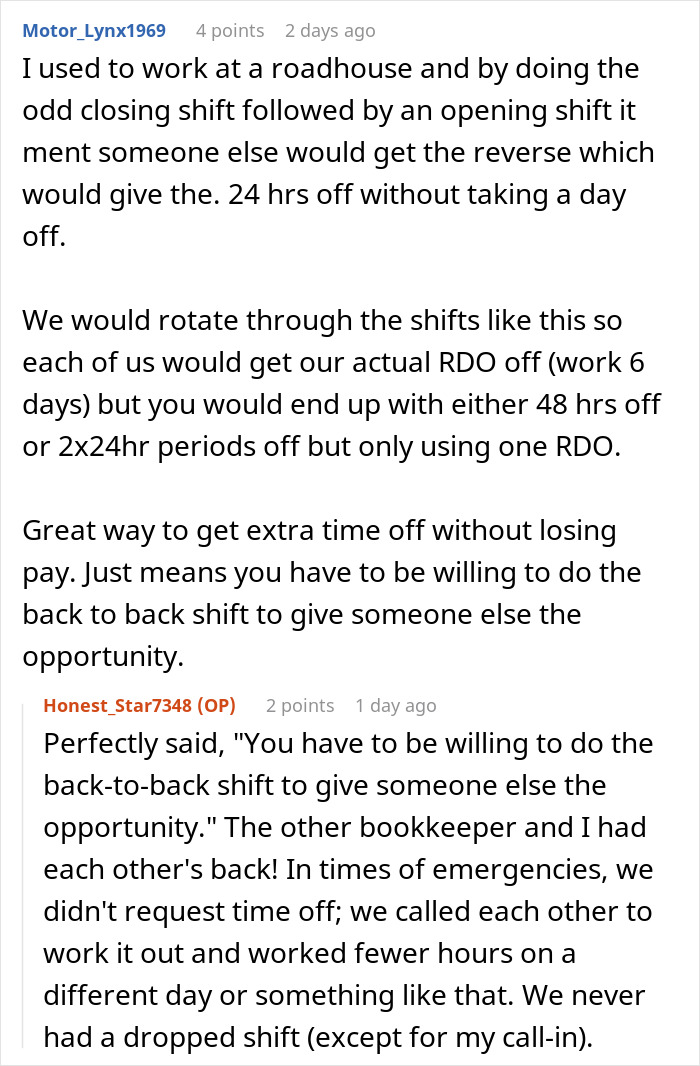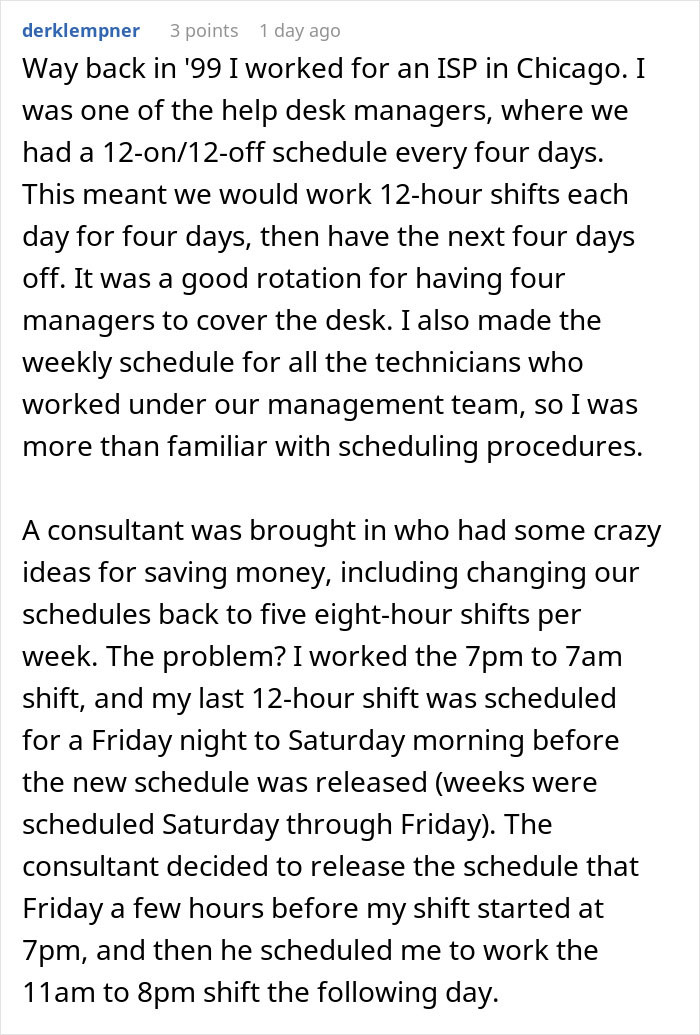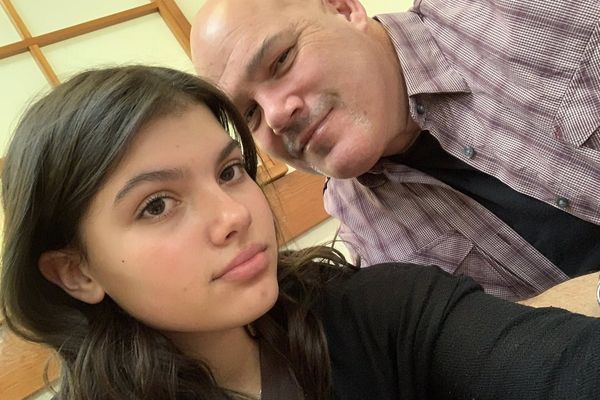As we’ve seen during the pandemic, retail workers are essential. According to NCSL, 1 out of 10 domestic workers in the US works in the retail industry. So it should be a given that retail employees get adequate pay and have generally decent working conditions. A schedule that makes sense can be one example of those conditions.
The OP of this story came into a job in which the situation was the opposite. The management wanted their bookkeepers to be unhappy and overworked for some reason. Well aware of their rights, the user Honest_Star7348 took this as an opportunity to teach the entitled management a lesson. They shared their malicious compliance story with the Internet in an attempt to encourage other retail workers to stand up for their rights.
Work schedulers and management are responsible for employees’ schedules to make sense

Image credits: Andrea Piacquadio (not the actual photo)
But this particular bookkeeper felt the boss only wanted to flex their authority, so they came up with a plan to teach them a lesson
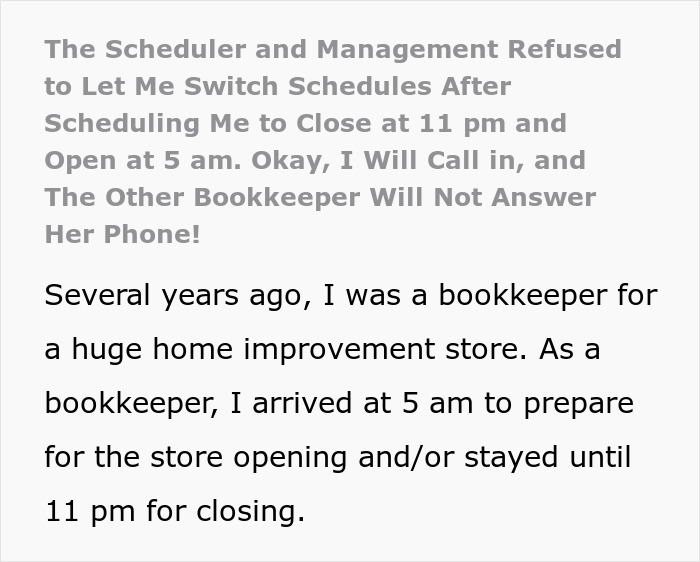
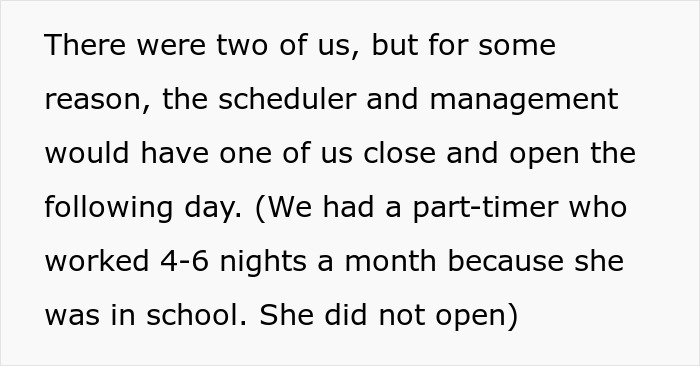
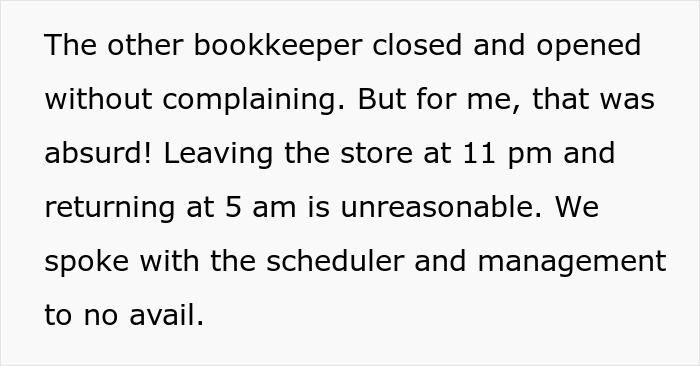
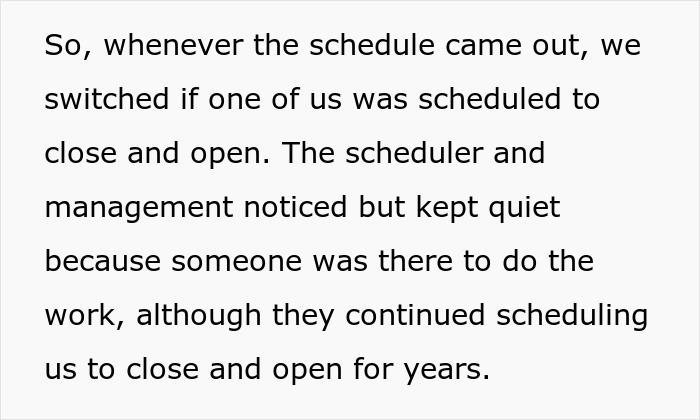
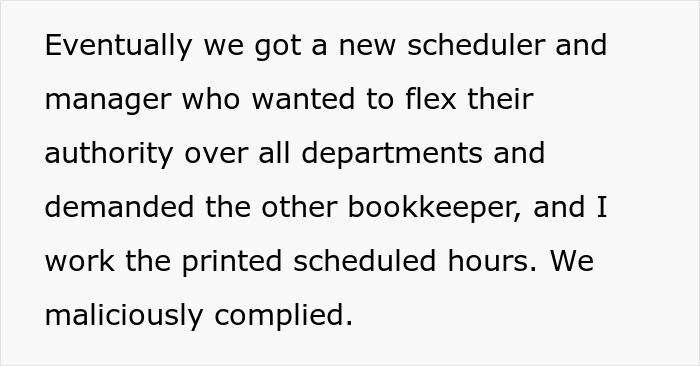
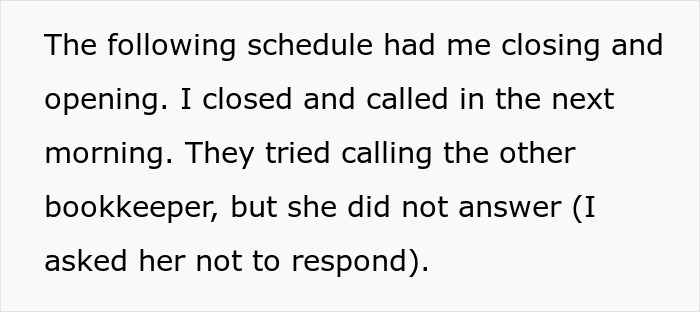

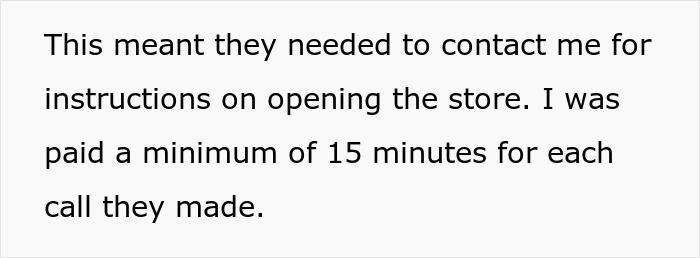
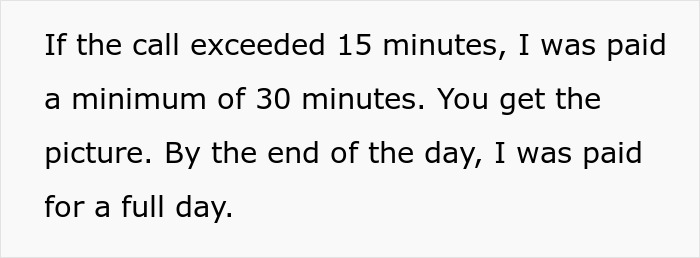
Image credits: SHVETS production (not the actual photo)
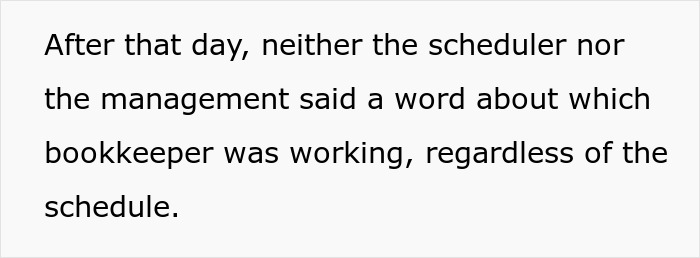
Image source: Honest_Star7348
What exactly are ‘clopens?’

Image credits: Tim Mossholder (not the actual photo)
This type of work schedule the OP describes is also called ‘a clopening shift.’ According to Indeed, it’s “the practice of employees working a closing shift followed directly by an opening shift with very few hours for rest in between.” It’s a common practice in the service industry: restaurants, gas stations, hospitals, and retail stores.
Clopening shifts can have negative side effects on the employees. If the time between shifts is short, say, four hours, workers might not have enough time to sleep. That can lead to poor performance at work and even burnout over time.
If the employees are working parents, their lives become even harder. Since parents can’t leave their children alone overnight, they have to rely on babysitters. This can become quite costly over time, not to mention that parents lose quality time with their little ones.
All these factors can lead to the employees feeling dissatisfied. And what do workers do when they’re not happy? Well, one option is to quit. This might be the reason why some companies or stores have high turnover rates.
The OP was fortunate to have had previous experience with labor laws

Image credits: Sora Shimazaki (not the actual photo)
Some commenters raised the question of why a retail store bookkeeper had to be the one to close and open the store. The OP clarified in the comments: “A manager or floor manager opened the store. As a bookkeeper, I had to prepare the cashiers, balance registers, balance checkbooks (credit cards), count the vault multiple times daily (tens of thousands of dollars), research customer receipts, etc.”
The Redditor also wrote in the comments how they knew a lot about labor laws thanks to their previous job. “Before this company, I worked for a company with a union. I was fortunate to work for a large phone company in the 90s. They [had] a union. I went to the meetings and learned about employment laws. If it weren’t for that knowledge, I would not have known to research such things.”
The Redditor observed how, in their previous place of employment, there were “strict guidelines” on how long employees could work and rest. Other commenters were curious how such short periods between shifts aren’t illegal in the US. Unfortunately, there are no federal laws that say anything about minimum time between shifts.
Apparently, it’s up to each state to determine how much time employees should have before their next shift

Image credits: Karolina Grabowska (not the actual photo)
Some states, like New York, give additional pay to employees who work split shifts. Companies may also institute their own laws on time between shifts to avoid the negative effects mentioned above. And while there are federal laws about lunch breaks, the time between shifts depends on state laws.
Oregon, for example, requires that employees have at least 8 hours before shifts. Otherwise, employers have to pay their workers double time. In California, an employee has to get a bonus if they work two shifts on the same day with more than an hour between them.
Some employees who work ‘clopening’ shifts might demand payment for working overtime. Some states have laws where a worker gets paid if they work more than 8 hours in a 24-hour period. Let’s say you work from 2 AM to 10 AM, and your next shift starts at 11 PM that same evening. That one hour after 11 PM counts as the ninth hour of work and is, therefore, considered overtime.
You can read the reactions from the commenters below
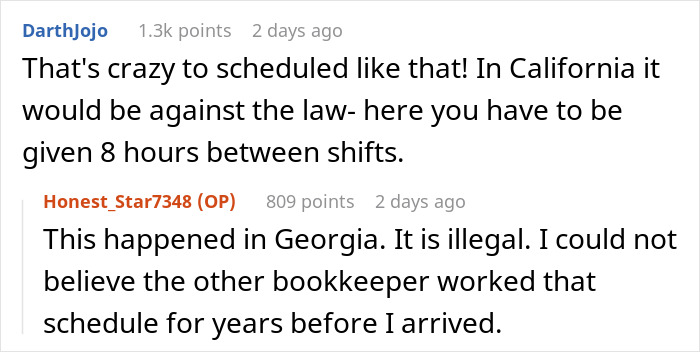

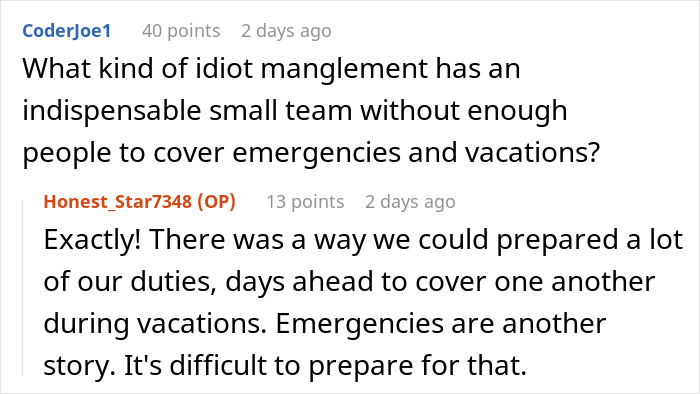

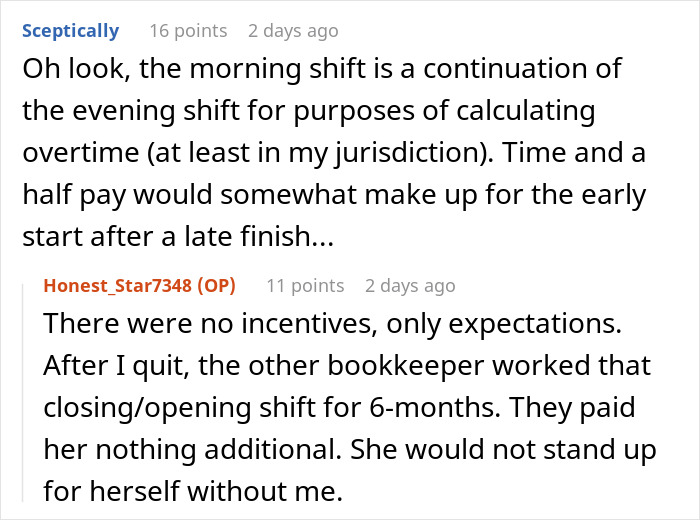
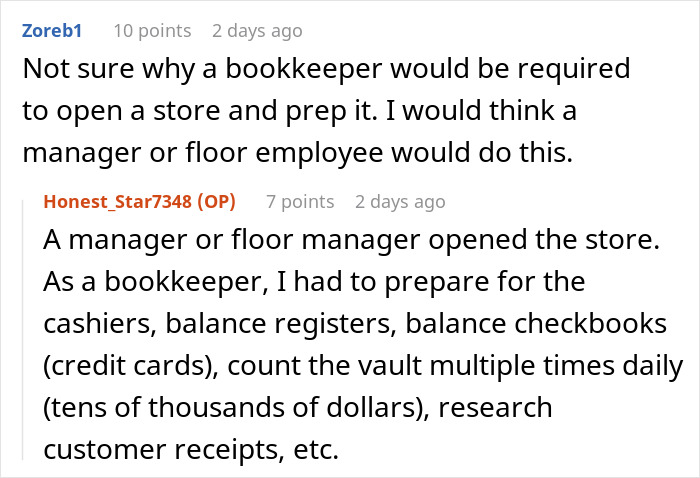
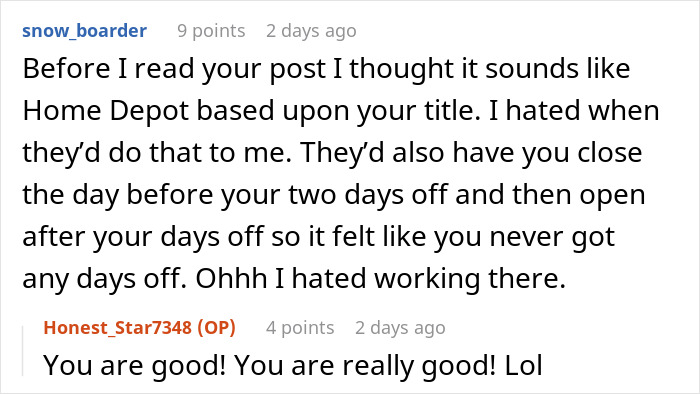
There were people who also shared their own nightmare stories
